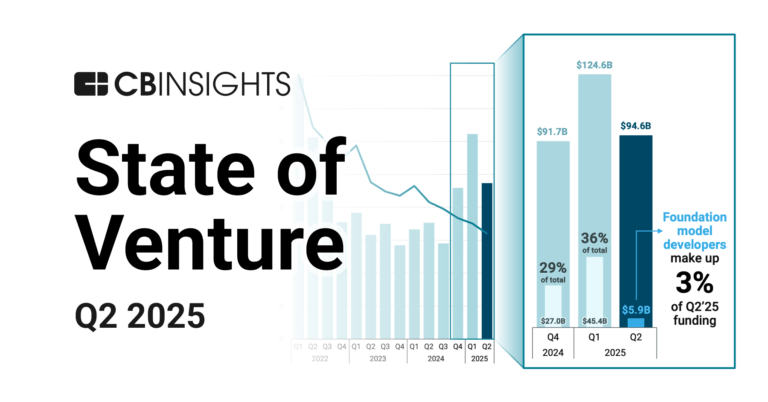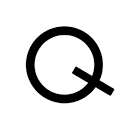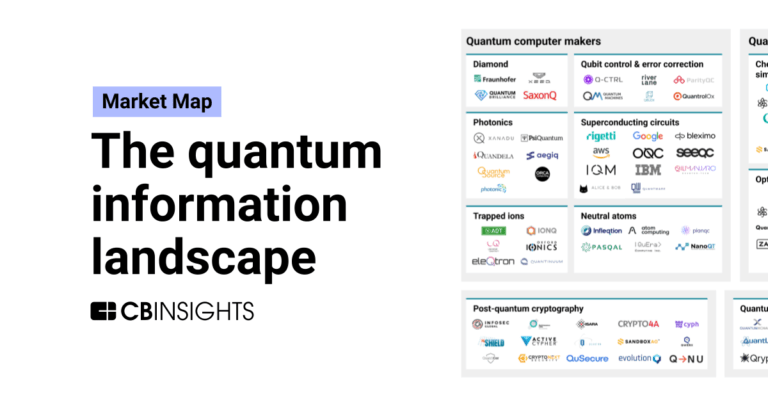
QuEra Computing
Founded Year
2018Stage
Series B - II | AliveTotal Raised
$247MRevenue
$0000Mosaic Score The Mosaic Score is an algorithm that measures the overall financial health and market potential of private companies.
+157 points in the past 30 days
About QuEra Computing
QuEra Computing develops quantum computers based on neutral-atom technology. The company provides a 256-qubit quantum processor, Aquila, and supports applications such as quantum machine learning, optimization, and simulation. QuEra Computing serves sectors that require computing capabilities, including finance, chemical and pharmaceutical, logistics, automotive, energy, and the public sector. It was founded in 2018 and is based in Boston, Massachusetts.
Loading...
ESPs containing QuEra Computing
The ESP matrix leverages data and analyst insight to identify and rank leading companies in a given technology landscape.
The quantum computer makers — neutral atoms market includes companies that build quantum processors using neutral atoms (atoms without net electrical charge) as qubits. This approach creates relatively stable qubits that can be packed closely together on a chip, making them less susceptible to decoherence. Solutions in this market typically feature optical trapping systems, precision laser control…
QuEra Computing named as Leader among 8 other companies, including Infleqtion, Quantum Machines, and Pasqal.
QuEra Computing's Products & Differentiators
Aquila
256-qubit quantum processor
Loading...
Research containing QuEra Computing
Get data-driven expert analysis from the CB Insights Intelligence Unit.
CB Insights Intelligence Analysts have mentioned QuEra Computing in 2 CB Insights research briefs, most recently on Jul 10, 2025.

Jul 10, 2025 report
State of Venture Q2’25 ReportExpert Collections containing QuEra Computing
Expert Collections are analyst-curated lists that highlight the companies you need to know in the most important technology spaces.
QuEra Computing is included in 5 Expert Collections, including Quantum Tech.
Quantum Tech
628 items
This Expert Collection contains private and recently exited companies working on quantum computing, quantum communication, post-quantum cryptography, quantum sensors, and other quantum tech.
Semiconductors, Chips, and Advanced Electronics
7,494 items
Companies in the semiconductors & HPC space, including integrated device manufacturers (IDMs), fabless firms, semiconductor production equipment manufacturers, electronic design automation (EDA), advanced semiconductor material companies, and more
Unicorns- Billion Dollar Startups
1,297 items
Generative AI
2,951 items
Companies working on generative AI applications and infrastructure.
Artificial Intelligence (AI)
37,256 items
Companies developing artificial intelligence solutions, including cross-industry applications, industry-specific products, and AI infrastructure solutions.
QuEra Computing Patents
QuEra Computing has filed 3 patents.
The 3 most popular patent topics include:
- quantum information science
- quantum mechanics
- quantum computing

Application Date | Grant Date | Title | Related Topics | Status |
|---|---|---|---|---|
5/11/2021 | Quantum information science, Quantum mechanics, Quantum physicists, Biophysics, Atomic physics | Application |
Application Date | 5/11/2021 |
|---|---|
Grant Date | |
Title | |
Related Topics | Quantum information science, Quantum mechanics, Quantum physicists, Biophysics, Atomic physics |
Status | Application |
Latest QuEra Computing News
Nov 7, 2025
Stage B will evaluate each company's R&D plans, risk-mitigation strategies, and prototype roadmaps to determine whether their approaches are realistic and scalable. The initiative aims to assess whether an industrially useful quantum computer—one whose computational value exceeds its cost—can be developed by 2033. The Defense Advanced Research Projects Agency (DARPA) has moved its flagship quantum computing effort, the Quantum Benchmarking Initiative (QBI), into its next phase — or Stage B — a shift from conceptual review toward rigorous technical validation of utility-scale quantum architectures. A total of 11 companies have moved into Stage B, according to the DARPA project web page Under the initiative's three-stage scheme, participants must first present a plausible architecture (Stage A), then a detailed R&D plan (Stage B), and finally undergo independent verification of hardware (Stage C). The transition to Stage B follows the completion of Stage A evaluations, in which DARPA assessed how well companies defined a path to achieving “utility-scale” quantum computing — meaning computational value that exceeds cost. DARPA Now, DARPA will subject select firms to a year-long deep dive into the realism of their roadmaps, risk-mitigation strategies and prototype burn-down plans. Companies Advancing to Stage B DARPA reports the following companies (with their qubit technology approach) have been selected for Stage B at this time: Atom Computing : Boulder, Colorado (scalable arrays of neutral atoms) Diraq: Sydney, Australia, with operations in Palo Alto, California, and Boston, Massachusetts (silicon CMOS spin qubits) IBM: Yorktown Heights, New York (quantum computing with modular superconducting processors) IonQ: College Park, Maryland (trapped-ion quantum computing) Nord Quantique: Sherbrooke, Quebec, Canada (superconducting qubits with bosonic error correction) Photonic Inc .: Vancouver, British Columbia, Canada (optically-linked silicon spin qubits) Quantinuum: Broomfield, Colorado (trapped-ion quantum charged coupled device (QCCD) architecture) Quantum Motion: London, UK (MOS-based silicon spin qubits) QuEra Computing: Boston, Massachusetts (neutral atom qubits) Silicon Quantum Computing Pty. Ltd.: Sydney, Australia (precision atom qubits in silicon) Xanadu: Toronto, Canada (photonic quantum computing) The list may grow, according to DARPA, adding that It is likely but not guaranteed that additional teams will enter Stage B in the future. DARPA plans to announce any additional promotion decisions once they contracted with those teams. Can a Useful Quantum Computer Be Developed by 2033? By selecting multiple firms for Stage B, DARPA signals that it believes certain concepts presented in Stage A met the threshold of plausibility. The initiative's ultimate goal is to assess whether an industrially-useful quantum computer can be developed by 2033 — defined as a system whose computational value outweighs its cost. The move from conceptual review to rigorous validation suggests DARPA is narrowing focus from “could this work” to “can this be built.” The DARPA team writes: “The Quantum Benchmarking Initiative is an expansion of the existing DARPA Underexplored Systems for Utility-Scale Quantum Computing (US2QC). QBI is separate from but related to the existing Quantum Benchmarking (QB) program that seeks to determine the yardstick for impact. In the simplest terms, QB seeks to answer the question: If a fully functioning quantum computer magically appeared, what would it make possible that a standard computer cannot accomplish?” For the quantum-computing ecosystem, this transition marks a maturation step. Firms that advance to Stage B are now tasked with detailing how they will scale, mitigate risks, and integrate prototypes — not just propose bold architectures. The outcome will provide clearer signals to investors, partners and national-security stakeholders about which qubit modalities and architectures may succeed. What's Next During Stage B (estimated to last about one year), DARPA will assess each performer's R&D plan, prototype roadmap, risk-mitigation strategy and manufacturing pathway. After satisfactory review, select firms will proceed to Stage C, where independent verification and validation teams will test actual hardware against benchmarks. DARPA says it is ultimately “interested in pursuing all viable approaches for which there is available funding.” That means QBI is not a competition to narrow the field to an ultimate winner, or even a few “winners.” “Rather, the aim is to evaluate each company's approach on its own merits,” the team writes. “Multiple, single, or even no participants will ultimately demonstrate a path to an industrially useful quantum computer within the next eight years. Thorough evaluation is crucial to understanding the true potential of the technology. Share this article:
QuEra Computing Frequently Asked Questions (FAQ)
When was QuEra Computing founded?
QuEra Computing was founded in 2018.
Where is QuEra Computing's headquarters?
QuEra Computing's headquarters is located at 1380 Soldiers Field Road, Boston.
What is QuEra Computing's latest funding round?
QuEra Computing's latest funding round is Series B - II.
How much did QuEra Computing raise?
QuEra Computing raised a total of $247M.
Who are the investors of QuEra Computing?
Investors of QuEra Computing include NVentures, Deloitte Tohmatsu Financial Advisory, SoftBank, Google, QVT and 19 more.
Who are QuEra Computing's competitors?
Competitors of QuEra Computing include Pasqal and 6 more.
What products does QuEra Computing offer?
QuEra Computing's products include Aquila and 1 more.
Loading...
Compare QuEra Computing to Competitors

Atom Computing develops quantum computers within the quantum computing sector. The company provides gate-based quantum computers that utilize arrays of optically-trapped neutral atoms, focusing on error-corrected qubits, coherence times, connectivity, and operations. Atom Computing serves sectors that require quantum computing, such as research institutions and technology companies. It was founded in 2018 and is based in Berkeley, California.

Alpine Quantum Technologies (AQT) specializes in general-purpose quantum computing within the quantum information processing industry. The company offers products and services based on trapped-ion technology, designed to perform a wide range of tasks such as molecule simulation and process optimization in various industries. AQT's quantum solutions are applicable in sectors such as chemistry, material sciences, and manufacturing. It was founded in 2018 and is based in Innsbruck, Austria.

Infleqtion is involved in quantum information technology across various sectors. It provides quantum-enabled products and AI-powered solutions that improve navigation, communication security, energy distribution, and computing. Its solutions serve commercial organizations and government entities. It was founded in 2007 and is based in Louisville, Colorado.

PsiQuantum is a quantum computing company focused on building commercially viable silicon photonic quantum computer. The company offers design and construction of utility-scale quantum computers utilizing a photonics-based architecture. It also engages in research and development of applications for quantum computing that address problems in various sectors. PsiQuantum was formerly known as PsiQ. It was founded in 2015 and is based in Palo Alto, California.

planqc specializes in the development of quantum computers using neutral atoms for quantum information processing within the quantum computing industry. Its quantum processors store and process information using individual atoms in scalable arrays, manipulated by precision laser pulses. It offers technology designed to achieve a quantum advantage by scaling to thousands of qubits, which is essential for solving industry-relevant problems. It was founded in 2021 and is based in Garching, Germany.

IQM specializes in superconducting quantum computers and operates within the quantum computing industry. The company offers a range of quantum computing products, including small-scale, advanced superconducting quantum computers with varying qubit counts, and a quantum cloud platform for research and development purposes. IQM primarily serves research laboratories, supercomputing centers, and industrial customers seeking to leverage quantum advantage. It was founded in 2018 and is based in Espoo, Finland.
Loading...

